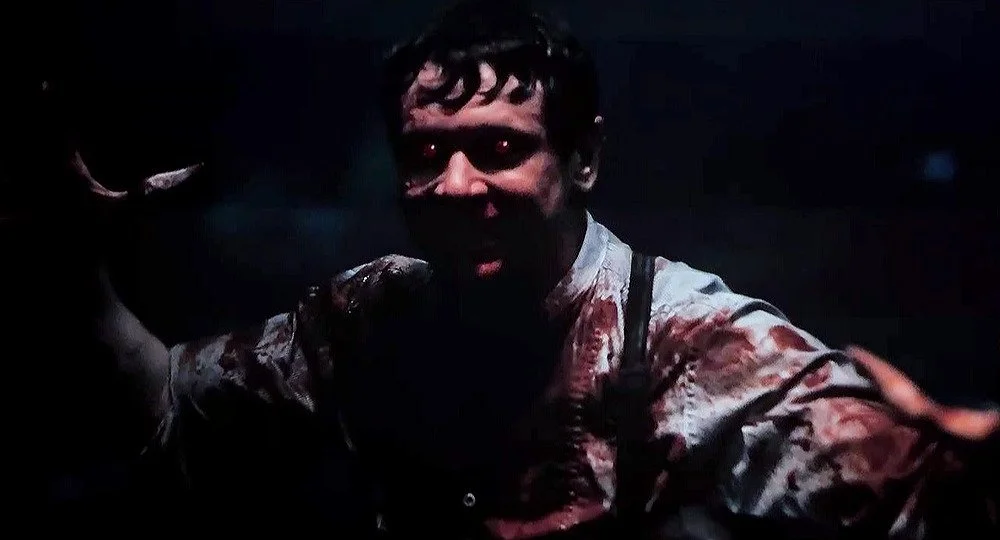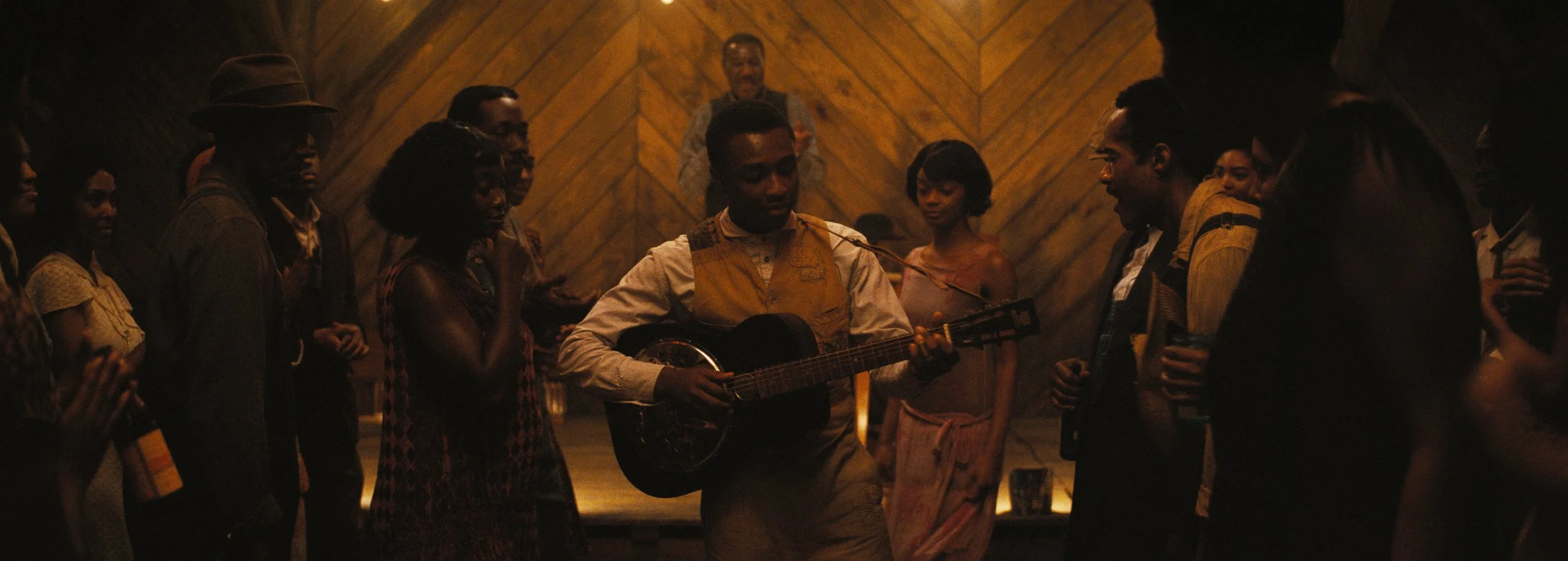Music to Die For - Sinners (2025)
“There are legends of people... born with the gift of making music so true, it can pierce the veil between life and death... conjuring spirits from the past... and the future.” - Annie, Sinners (2025)
Image: YouTube
It is an absolute sin if you haven’t seen Ryan Coogler’s Sinners (2025) yet. Puns aside, seriously, you’re missing out, not only on a great movie, but on an amazing soundtrack and score. Sinners is packed with a rich, vibrant, chill-inducing sound that I have yet to hear in any other movie as consistently as I did in the theater this April. This won’t be an overview of the movie, just some key details about the music, so if you really haven’t seen the movie; go watch! Otherwise, let’s unpack.
The Blues
Sinners is set in early 1900s Mississippi, post WWI, where the blues were LIVING. The genre formed in the Deep South, deriving from work songs, field hollers, and spiritual songs often recited/sang by enslaved people in the late 1800’s. Lyrically, the blues offered a way to tell stories, to explain the hardships experienced by Africans and African Americans during that time. Though having a tie with religious music, in Sinners, the blues are considered a variety of things to different characters: Jedediah (the pastor, Sammie’s dad) believed the blues were evil, performing them was a sin, the devil’s work “You keep dancing with the devil…. One day he’s gonna follow you home”; Delta Slim, a blues performer himself, said, “Blues wasn't forced on us like that religion. Nah, son, we brought that with us from home. It's magic what we do. It's sacred... and big.”
You see, the whole topic of music was really controversial in this movie, among the characters at least. However, it was also the one thing that tied everyone together, at least that’s how Irish vampire Remmick sees it: “we believe in equality and music, and we just came here to play, spend some money, have a good time…”
Rocky Road, not the ice cream
So as mentioned, vampires. Irish vampires. Specifically, one Irish vampire who performs a hell of a rendition of “Rocky Road to Dublin.” Personally, my absolute favorite part of the soundtrack; catchiest, obvi because it’s a passed-down folk song, but also extremely meaningful, again, because it’s a passed-down folk song. The inclusion of this song, being that it is about an Irish man making his way to Britain and being pushed away because he was judged by his accent and where he came from (hmm, unrelated yet sounds familiar), allows Remmick’s character to relate on a deeper level to the crew opening up the juke joint; while coming from two totally different backgrounds, these people have both been oppressed and discriminated against, and then used music as an attempt to cope or heal.
Watch/listen to Remmick’s rendition of “Rocky Road to Dublin”:
Though we don’t know his original story before the movie, we know that Remmick presented himself because he was drawn to Sammie’s music. And, based on the quote at the beginning of the blog (stated twice in the film), we can assume that Sammie is the one who holds the power to pierce the veil (PTV; maybe a different blog topic) and conjure spirits.
SAMMIEEE!
Image: Sinners Wiki
Sammie Moore. First of all, ugh! His voice. Can’t get over it. Go listen to literally any song that Miles Caton sings right nowww. Anyways, arguably the most significant part of the movie happens because of Sammie’s singing; he was able to conjure spirits in front of the viewer from the past and the future, from different cultures. This scene is nothing short of a spiritual experience; a goosebumps-creating, spine-tingling, boot-quaking, shivers-timbering experience.
Image: IndieWire
A lot of people argued that this scene was confusing or strange, maybe because they didn’t expect it in a horror movie. I think, though true, unexpected, this scene did a wonderful job at showcasing Black music and dance culture, from African tribal, to 2000s hip hop, and everywhere between and crossed cultural barriers by including a Beijing opera performer in the montage. This detail showed just how powerful Sammie’s singing was during the scene; harnessing the power to reach various cultures and traditions across the timeline. The lyrics that Sammie is singing in this song, “I Lied to You,” also enhance the idea that the blues were viewed as something bad/evil that he had to lie to his father about, singing, “I hope you can stand it... I know the truth hurts, so I lied to you, I love the blues.” This topic could be its own blog post, though.
Watch the scene:
There is so much more to discuss when talking about the musical significance of this movie, but these were a few of my favorite parts!



